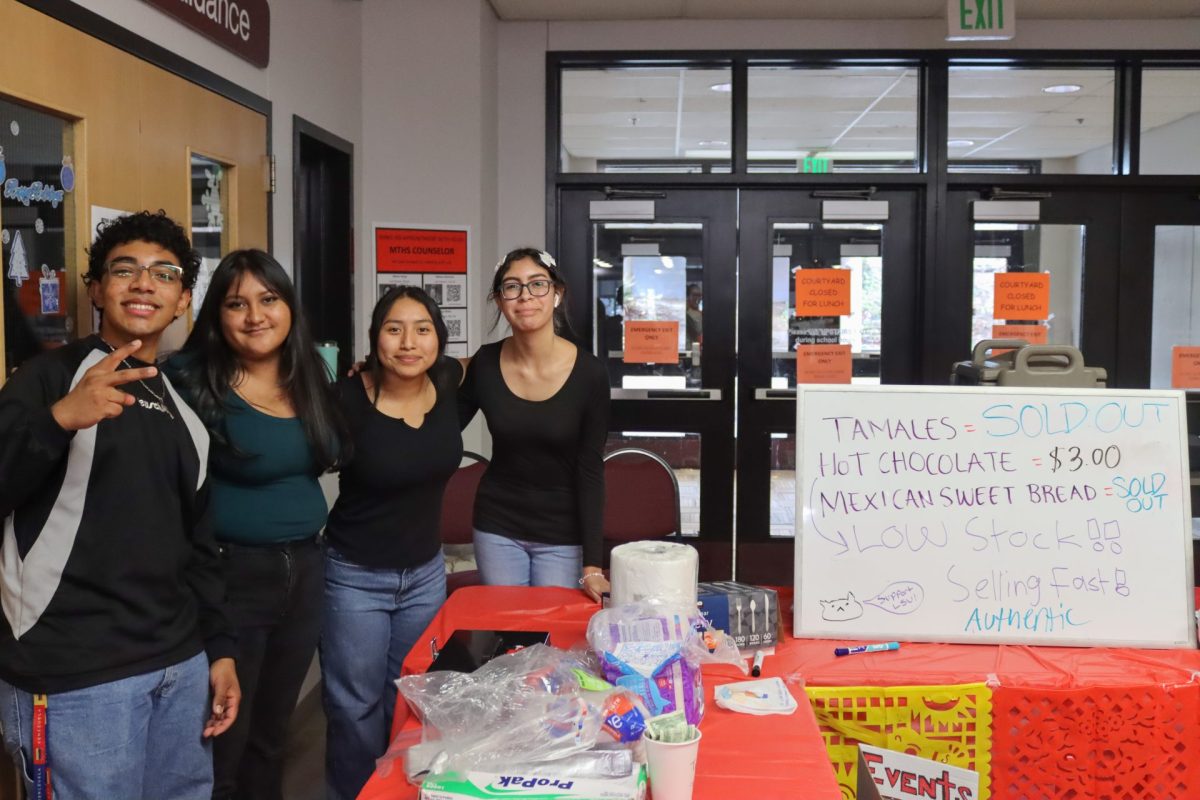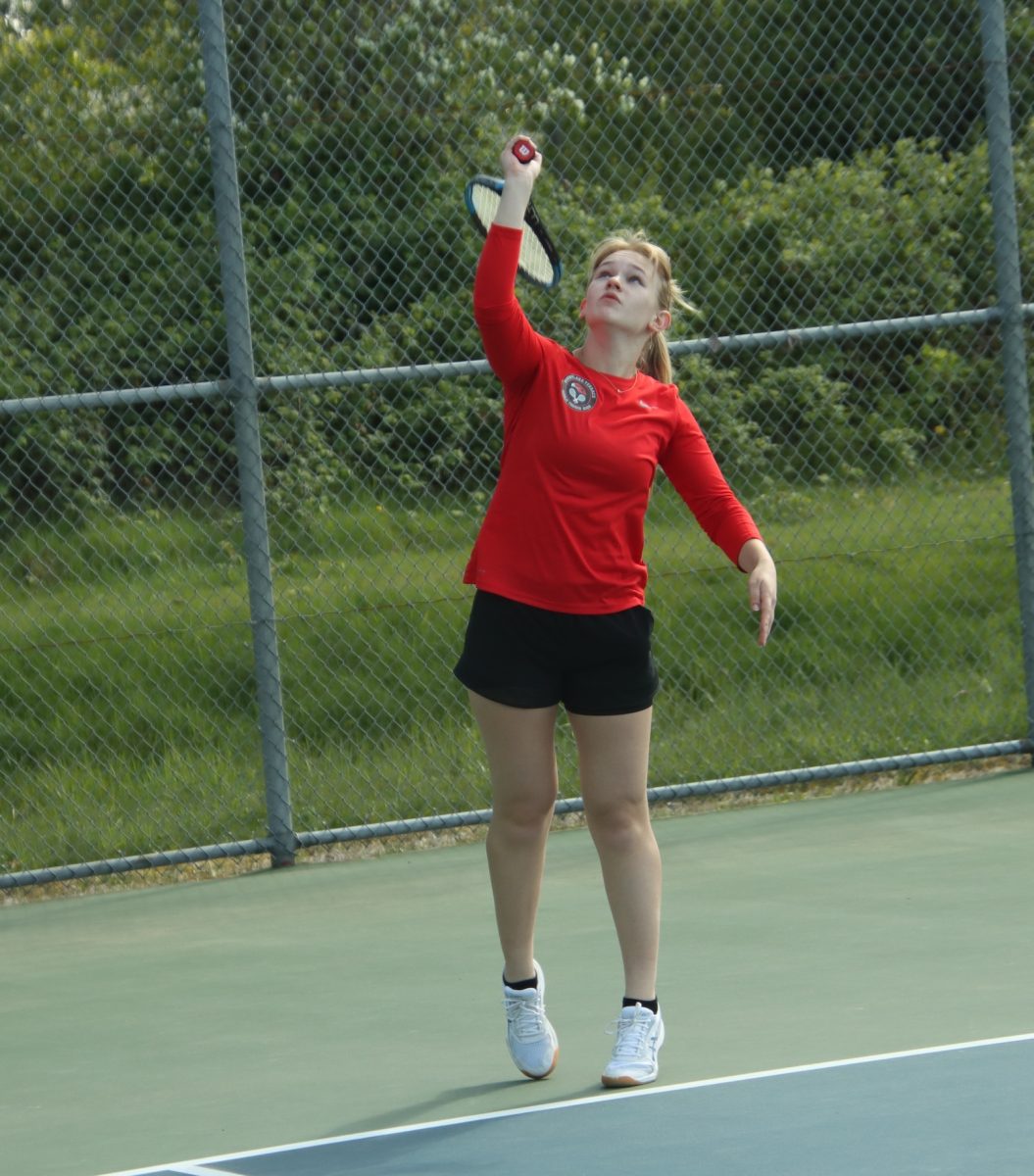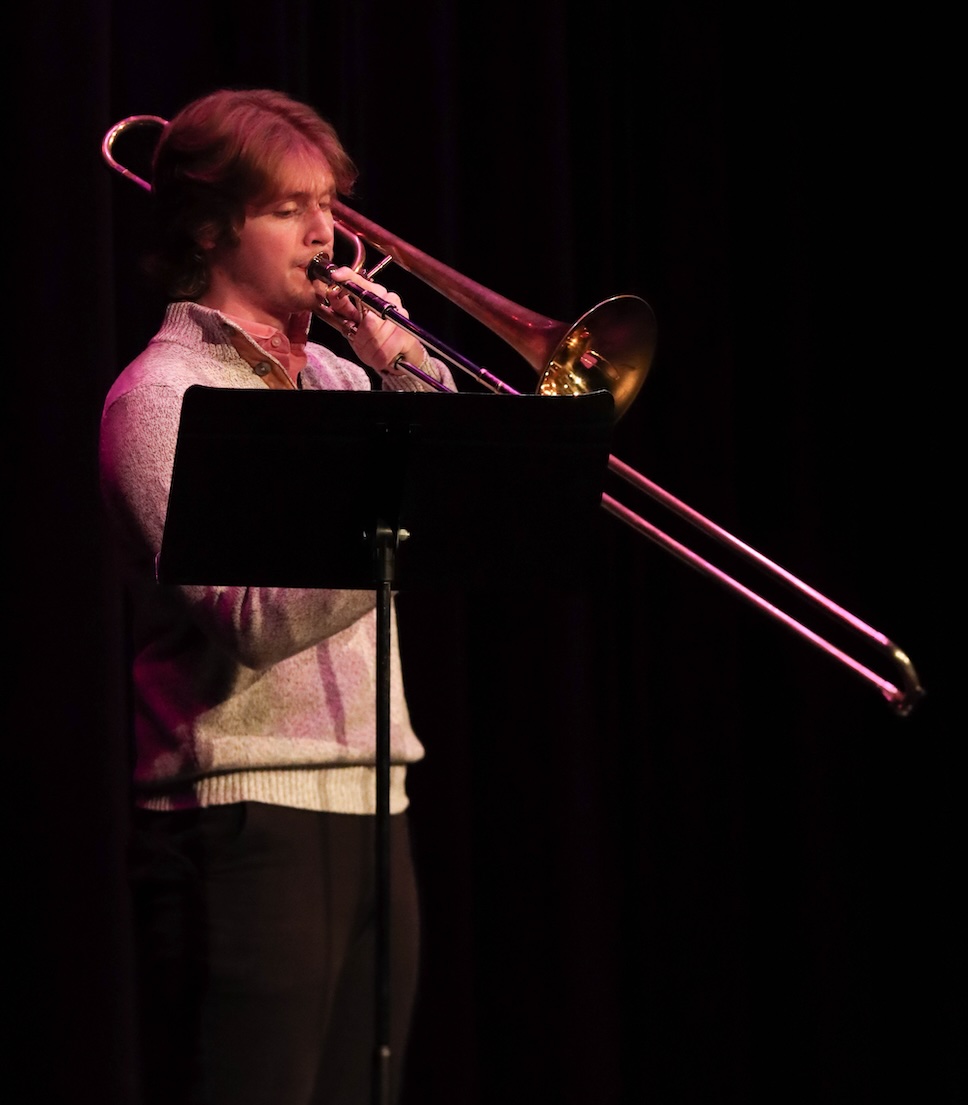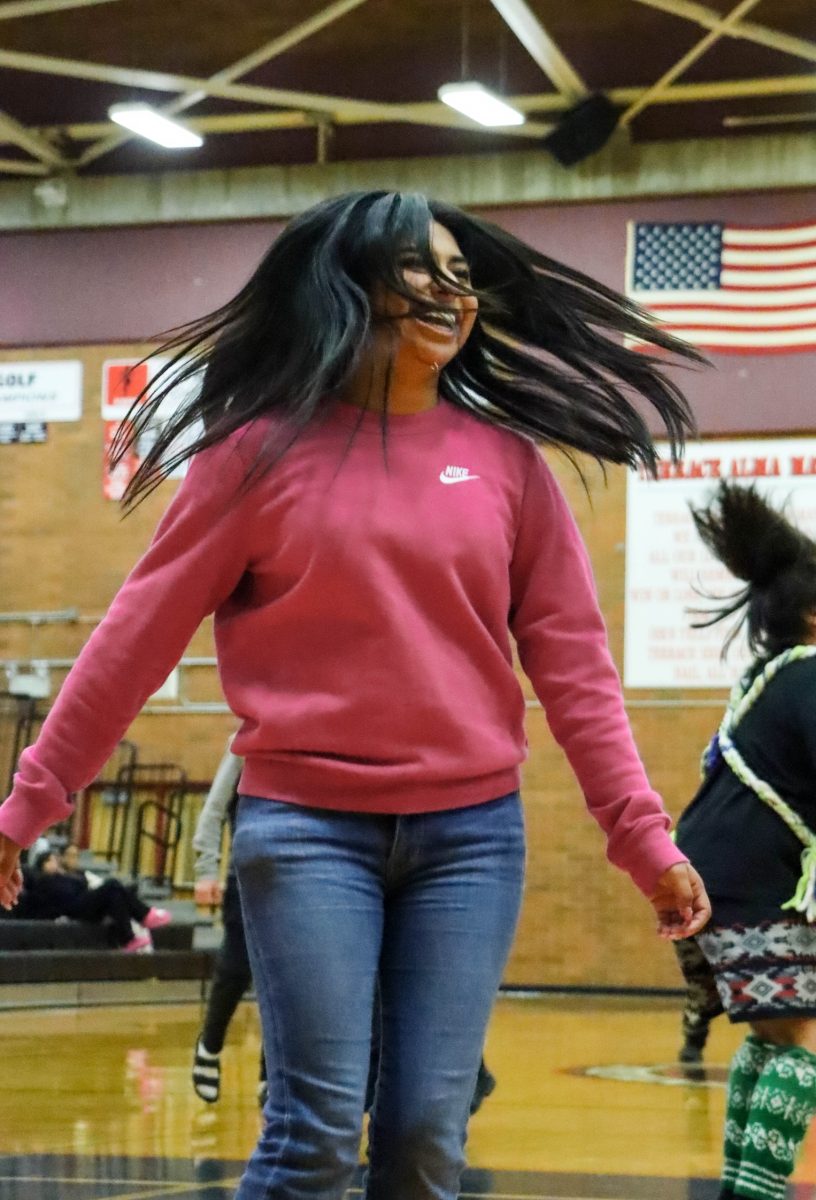As one of the major draws to MTHS, the music department has had an immeasurable impact on the school and the students who attend it. With programs attending numerous festivals throughout the years and as a result, many awards taken home, there is no doubt concerning the high quality of the department as a whole.
The music department consists of three main divisions, those being orchestra, choir and band, each with their own subdivisions, styles and methods.
There are 10 music classes between the three, in addition to two other classes: History of Rock & Roll and Guitar. All of these classes count as art credits, although a few of them can be counted as Career and Technical Education (CTE) credits.
Some of the standout individual classes include Jazz Ensemble 1, Percussion Ensemble, Chamber Orchestra and the Accents/Women’s Vocal Ensemble.
Jazz 1 is the highest level of band available and requires the most experience to get into. According to Jazz Band member and senior Jun Park, to get in you have to be more developed as a jazz musician. This group goes on the most trips and does the most when it comes to performances and practice, and in turn wins many awards.
Percussion Ensemble consists of all kinds of percussion instruments, from bass drums to snares and cymbals. They perform at home football games, assemblies, and even with Symphonic Band and Chamber Winds. Under the direction of instrumental music teacher Darin Faul, they have recently been engaging in more competitions.
Many of these classes and especially the more advanced classes require auditioning or teacher permission. Essentially, there’s a base amount of skill you need to make it into a lot of music classes. The one exception to this is chamber choir, which doesn’t require any prior experience.
“You want to have a passion for it, because you’re there to sing, but you don’t really need to know anything prior to coming in because you pretty much learn everything,” Dynamics choir member and senior Mackenzie Gardner said.
Also, it’s worth mentioning that every band, choir and orchestra class takes up two semesters. Remaining in year-long music classes throughout high school won’t leave much room for other electives, but many feel that music is worth it.
“We ask people to sit in the moment and create art in the moment. That requires a massive amount of concentration and attention to another person,” Faul said.
One of the fun parts to being in music is the opportunity to go on field trips and compete against other schools, as well as getting evaluated for the performance you’ve worked to perfect. Band, orchestra and choir all get their chances for field trips. For example, every few years each group travels to Silverwood in Idaho.
Performance opportunities vary depending on the music group. Choir goes to the different Edmonds School District (ESD) elementary schools to perform for them and get them excited about music. Band and sometimes Orchestra get chances to go on longer trips to places like Disneyland.
“One of the best parts about being in music is the performances, it’s really what you’re working for through the whole year,” Chamber Orchestra member and senior Tina Liu said.
Both students and teachers said the music classes benefit everyone and gives the chance to explore something new.
“It gives you an opportunity to learn something that you wouldn’t normally go and learn,” Liu said.
Being in a music class can mean a lot of extra time and commitment.
“It depends on how good you want to be and how much time you want to put into it, [but] people who enjoy music don’t necessarily see it as a commitment, we see it as something we enjoy doing,” Park said.
Among the most remarkable things about music is the wide range of life skills that can be obtained from participating in it. For example, learning how to respond to constructive criticism.
“Some people are really defensive on what they do, but through music you [have to be] able to take that into consideration,” Park said.
According to Faul, teamwork is also extremely important to music classes.
“In other classes it’s very individualized, so it’s ‘I study the material, I take an individualized test, I get an individualized grade, my failure or success does not matter to the rest of the class,’ but [in band] it’s very community based. We need everybody to succeed, so we work to help everybody succeed,” Faul said.
However, Faul said the music classes struggle with turnout. He said the class would be even better if more people signed up and wanted to learn music.
“One of the main things that I see with students, in our school specifically, is that they’re isolated. It seems to me that there’s been an increase in depression and loneliness. There’s the presentation of only your best self a lot of times online and people look at that and it seems like everybody else is doing so well relative to how they’re doing and I think that also causes people to feel depressed,” Faul said. “And generally there’s a lack of community, very few students, with the exception of those who do activities, I think get plugged into something. If we could just get more people building that sense of community. And music is one place where that happens.”
The benefits students can receive are similar to the other arts classes, from obvious things like having a creative outlet, to more subtle things like learning to work as a team and building confidence. Faul said band really helps students develop other skills, such as thinking outside the box and working with others.
“Being creative and innovative are probably the most important things that will be required by students in any field, because the lower level skills, the computations the mechanics, are all being done for much cheaper elsewhere or on a computer. So we need the human part, which is what we deal with [in music] – being creative, self expression, coming up with new fresh ideas. That’s all it is,” Faul said.






